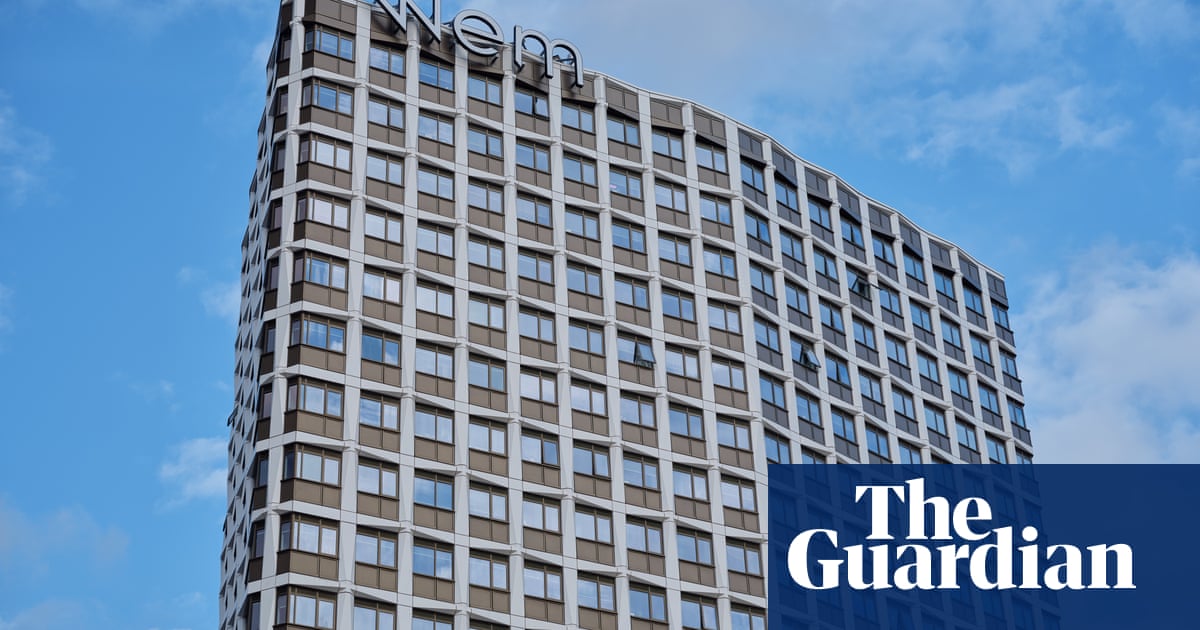
Delphine Edde gave up a successful career in Paris to return to Lebanon and launch her own digital media empire
PARIS: Twelve years ago, while still in her early 30s, Lebanese-French entrepreneur Delphine Edde held a prestigious position with renowned publishing house Conde Nast, as director of its digital operation in Paris.
However, she decided she wanted to return to her roots in her native Lebanon, with her French husband and their two young sons, and establish her own company, Diwanee, which she envisioned as a digital media provider for Arab women.
“Addressing Arab women was very important to me,” Edde said. “It was the thread running through everything that I wanted to create, and this desire has motivated me and pushed me to create that content.”
Edde’s aim was to open offices in Beirut, Dubai and Saudi Arabia to create Arabic-language entertainment websites for women in the Gulf, in particular those in the Kingdom and the UAE. To help her achieve this ambitious goal, she had the experience she had gained in digital communications, fashion and the luxury sector while working in the US at the International Fashion Institute, followed by jobs in a number of advertising agencies in France before joining Conde Nast.
The first three sites she launched were Yasmina.com, which focuses on fashion and beauty, 3a2ilati.com, which specializes in parenting, and food site atyabtabkha.com. But she faced many challenges in the early days.
“It was hard because 12 years ago, Arab women in the Middle East were generally conservative,” Edde said. “Nowadays, everything has evolved, especially in Saudi Arabia, and this has been very thrilling because it enabled our publications to evolve at the same time as our audience.
“It was essential for the publications to follow and also foresee the audience’s needs. Some exciting social and cultural movements have occurred and we always find that we have a fast-moving audience. When we started there was no TikTok or Instagram; today these are indispensable tools for addressing Arab women, and so we all develop together.
“Arab women have always known what they wanted and were knowledgeable about the topics they discussed.”
Six years ago, Webedia — a global media and technology company owned by French investment company Fimalac, led by businessman Marc Ladret de la Charrière — invested in Diwanee, contributing to its growth.
More recently, Diwanee merged with Saudi business UTURN Entertainment, owned by businessman Kaswara Al-Khatib. The new entity created by the merger, Webedia Arabia, received funding from Five Capital, a joint fund of French financial institution Caisse des Dépôts et Consignation and Riyadh-based Kingdom Holding. It has grown to become one of the largest Arabic digital networks, with an audience of more than 63 million people across its websites and social media.
During visits to Saudi Arabia, Edde said she has met many women who have worked hard and created small businesses to turn their passions into livelihoods. She also highlighted the rapid increase in the number of women graduating from university in Saudi Arabia, which exceeds that of men. This is interesting, she said, because the difference is not yet reflected in the Saudi work force. In general, she added, she has been impressed by the educational achievements of Saudi women.
“A year and a half ago I held a conference in Riyadh, at King Faisal University,” she said. “I talked about my career, about women entrepreneurs, the challenges I had faced and how I had balanced my career and my personal life.
“I am the mother of two sons and what struck me were the questions the Saudi women asked about how I manage my career and the men in my family. I told them I was lucky to have a father and mother who always stressed that I needed to study and be independent. I have a husband who has always supported my work.
“Support from the men in your family encourages you to work and succeed in realizing your aspirations, which for me was to work on the content of these sites for Arab women and also to build the work teams and train them for the digital world. Building the company in three Arab countries has been a great experience.”
Edde said her Lebanese roots provided the motivation for her return to the country. Though her parents were proud of her success in France, they were delighted at her decision to return home, where her grandfather, former Cabinet minister Henri Edde, was able to spend time with his great-grandsons.
However, working in Lebanon was initially more of a challenge than a joy, she admitted. The infrastructure was poor and internet connections were unreliable, though this improved with the arrival of fiber-optic lines. Edde said she and her team could have performed miracles if better infrastructure had been in place.
Another difficulty was recruiting technically qualified people in other countries and obtaining the necessary permissions and documents for them to work in Lebanon. It was an impossible mission in terms of legal requirements, and financing was hard to secure in Lebanon because nobody understood the kind of work Edde was doing, so she had to look for investment elsewhere.
Edde’s most recent visit to the Kingdom was in February, when she was invited to AlUla by a client, the French jewelry firm Piaget, which was a sponsor of the three-day Tantoura Festival in the old town. She described the trip as “a three-day dream visit in an enchanting place.”
She added: “The Royal Commission for AlUla did an extraordinary job. They succeeded in getting the best teams in all the different sectors and they achieved stunning results: the art exhibition with Desert X in the middle of the desert, the hotels in tents with perfect service, the training of guides plus the beauty of the place and the kindness and hospitality shown to the visitors made the stay just magical.
“It was amazing to see how AlUla’s beauty had been successfully highlighted in terms of handicrafts and in creating an oasis.”











